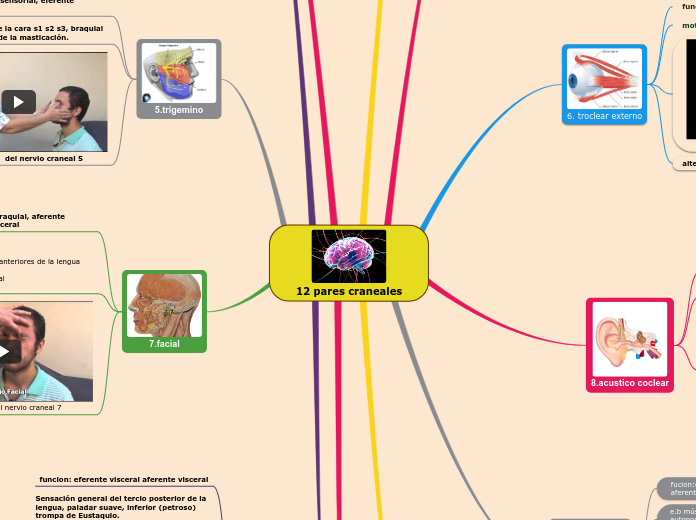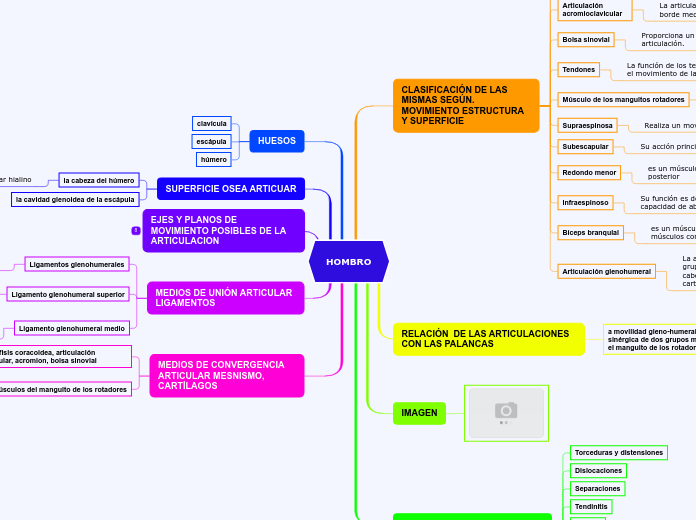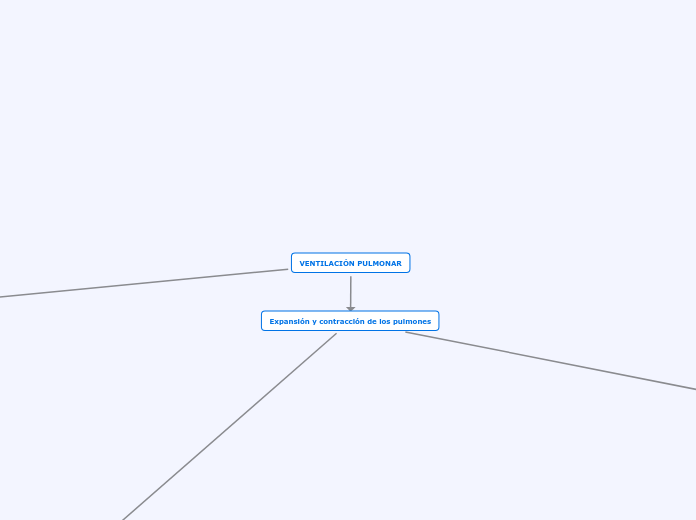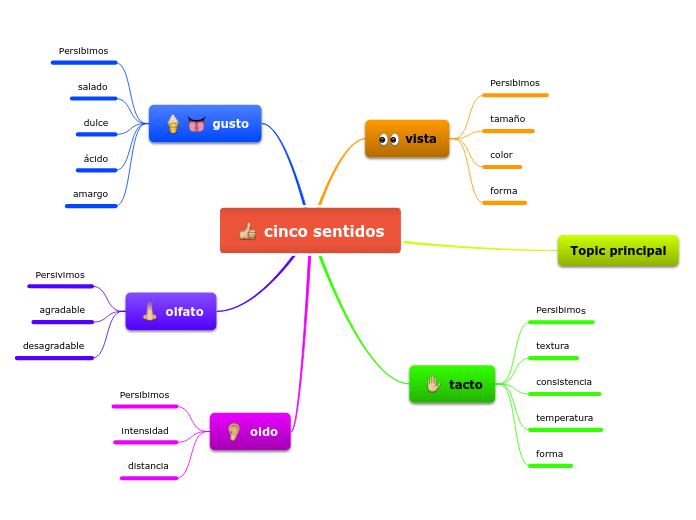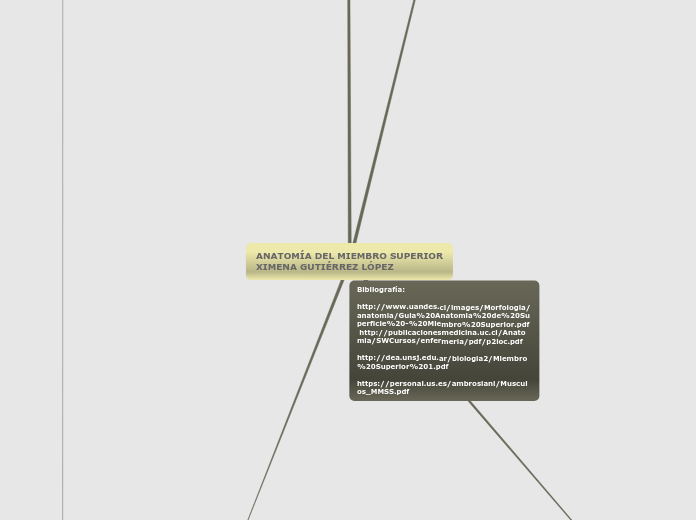12 pares craneales
Type in the name of the book you have read.
11.espinal
exploracion nervio craneal 11
alterasion parálisis
Esternocleido- Astas ventrales
mastoideo, trapecio de C2–C5
funcion:eferente braquial
9.glosofaringeo
alteración nauseas
exploración del nervio craneal 9
Sensación general del tercio posterior de la
lengua, paladar suave, inferior (petroso)
trompa de Eustaquio.
Estimulación sensorial
de los cuerpos y seno
carotídeos. Sentido
del gusto del tercio
posterior de la lengua
funcion: eferente visceral aferente visceral
The main idea is what the book is mostly about.
Some tips to find out the main idea of a book easier:
- Read the title.
- Look for the text features.
- Figure out if you are reading a fiction or a non fiction book.
- Think about some examples that support this idea.
7.facial
Type the names of the book characters. Start with the main character.
Draw arrows to represent the relationship between them and if it is possible write on them what they represent for each other (if they are relatives, friends, lovers, enemies etc.)
exploración del nervio craneal 7
alteracion paralisis facial
expresión facial,
cutáneo del cuello,
del estribo, los los 2/3 anteriores de la lengua Glándulas Núcleo
submandibulares, salival
sublinguales lagrimales
What are the characteristics that best describe the character? Type them here.
funciones:eferente braquial, aferente visceral, aferente visceral
5.trigemino
In contrast to the main idea, the theme is the message, lesson or moral of the book.
Some tips to find out the theme of the book easier:
- Try to find it while you are reading. It may be stated or implied.
- Think about how the characters reacted to obstacles.
- Think about the important decisions that the characters made.
- Think about the characters growing or changing throughout the book.
exploración del nervio craneal 5
alteración: anestesia parálisis
sensitivo dolor de la cara s1 s2 s3, braquial motor músculos de la masticación.
funcion:eferente sensorial, eferente braquial
3.troclear comun
alteracion:ptosis parapado caido, dipopliavision doble, Amnisocoria Es el tamaño desigual de las pupilas
movimiento motor Rcto interno, recto superior,recto inferior, oblicuo inferior, elevador del parapado
funcion:eferente sensorial motor funcion parasimpatica miosis.
Take notes while you read the book. Write here your favorite quotes from the book.
1. olfato
Take notes while you read the book. Type here the resources, books, or websites that the author mentioned and you want to check out later.
exploración del nervio craneal 1
alteracion disosmia: anosmia perdida del olfato, hiposmia disminucion del olfato
transmite impulso olfatorios
12.hipogloso
Motor Músculos de la lengua
del hueso hioides
10.neumogastrico
exploración nervio craneal 10
e.b músculos de la faringe deglución e.v control autonomo de las visceras,sensaciones provenientes de las visceras, a.s meato auditivo
fucion:eferente braquial eferente visceral, aferente viscera, aferente sensorial.
8.acustico coclear
Type the main events of the book, classifying them in: events from the beginning, events from the middle, and events from the end of the book.
Describe the story visually. Add a representative picture for each of them.
exploracion 8 nervios craneales
alteración vetico anacusia
proyecta al núcleo y vestibular del coclear; después al oído interno
funcion:sensitiva sensorial
6. troclear externo
alteraciones estrabismo
exploracion 6 nervios craneales
motor recto externo abduccion
funcion:eferente sensorial
4.patetico troclear
What is the reason why the author wrote the book?
exploracion 3,4,6 nervios craneales
alteración estrabismo hacia adentro
motor oblicuo superior
funcion:eferente sensorial motor
2. optico
Who is the author of the book? Type in his/her name.
exploracion del nervio craneal 2
alteracion amaurosis, perdida de la vista
trasmite inpulsos opticos
funcion: sensorial especial
